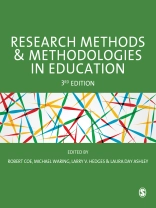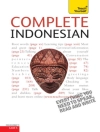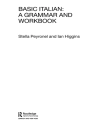Your #1 resource for carrying out educational research as part of postgraduate study.
High-quality educational research requires careful consideration of every aspect of the process. This all-encompassing textbook written by leading international experts gives you considered overview of principles that underpin research, and key qualitative, quantitative and mixed methods for research design, data collection and analysis.
This third edition includes four new chapters:
- Disseminating your research
- Data science and computational research methods
- Observational methods
- Analysis of variance (ANOVA)
Plus a new Research essentials feature that highlights key ‘must-haves’ or misconceptions relating to each methodological approach, research design or analytical tool discussed.
This is essential reading for postgraduate students on education courses and early career researchers looking to sharpen their research practice.
Innehållsförteckning
Chapter 1: Introduction – Robert J. Coe
PART I: INTRODUCTION TO RESEARCH METHODS AND METHODOLOGIES IN EDUCATION
Chapter 2: The nature of educational research – Robert J. Coe
Chapter 3: Finding your theoretical position – Michael Waring
PART II: BASIC PRINCIPLES AND PRACTICE IN CONDUCTING RESEARCH
Chapter 4: Design of empirical research – Larry V. Hedges
Chapter 5: Planning your research – Laura Day Ashley
Chapter 6: Inference and interpretation in research – Robert J. Coe
Chapter 7: Research ethics – Martyn Hammersley
Chapter 8: Disseminating your research – Mike Mc Linden
PART III: RESEARCH DESIGNS
Chapter 9: Action research – Carol Munn-Giddings
Chapter 10: Naturalistic research – Rob Walker
Chapter 11: Ethnographic research – Ghazala Bhatti
Chapter 12: Visual methodologies – Claudia Mitchell
Chapter 13: Grounded theory – Michael Waring
Chapter 14: Case study research – Laura Day Ashley
Chapter 15: Secondary data – Emma Smith
Chapter 16: Longitudinal research – Anna Vignoles
Chapter 17: Statistical and correlational techniques – Stephen Gorard
Chapter 18: Impact evaluation – Steve Higgins
Chapter 19: Interventions: experiments – Peter Tymms
Chapter 20: Mixing methods in education research – Gert Biesta
Chapter 21: Systematic reviews – Carole Torgerson, Jill Hall, Kate Lewis-Light
Chapter 22: Data science and computational research methods – Christian Bokhove
PART IV: DATA COLLECTION TOOLS
Chapter 23: Observational methods – Drew H. Gitomer
Chapter 24: In-depth interviews – Carolyn L. Mears
Chapter 25: Focus groups and group interviews – Anita Gibbs
Chapter 26: Internet-based methods – Rhona Sharpe and Greg Benfield
Chapter 27: Doing social media research – Eve Stirling
Chapter 28: Documentary methods – Gary Mc Culloch
Chapter 29: Questionnaires – Peter Tymms
PART V: ANALYSIS METHODS
Chapter 30: Using software in qualitative data analysis – Graham R. Gibbs
Chapter 31: Statistical analysis tools – Paul Connolly
Chapter 32: Discourse analysis – Elaine Vaughan
Chapter 33: Media analysis – Michael Atkinson
Chapter 34: Biographical research – Michael Tedder
Chapter 35: Statistical hypothesis tests – Michael Borenstein
Chapter 36: Analysis of variance (ANOVA) – Wendy Chan
Chapter 37: Multiple linear regression – Stephen Gorard
Chapter 38: Multilevel analysis – Michael Seltzer and Jordan Rickles
Chapter 39: Effect sizes – Robert J. Coe
Chapter 40: Meta-analysis – Larry V. Hedges
Om författaren
Dr Laura Day Ashley, University of Birmingham, Lecturer and Co-Head of Research and Knowledge Transfer for the Department of Education and Social Justice. She has a background in social anthropology and comparative and international education, with a particular interest in alternative, informal and non-state forms of education provision beyond, or at the margins of, mainstream state schooling. Her research on private and non-state schools in low and middle-income countries has achieved significant and sustained policy impact. She has particular expertise in case study research in multiple contexts, and the development of rigorous literature reviews that assess bodies of evidence derived from both qualitative and quantitative research.












